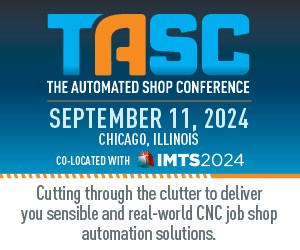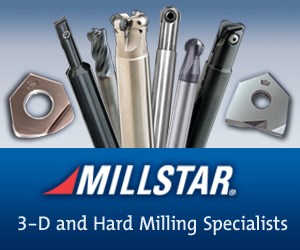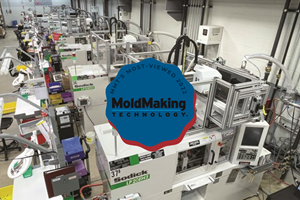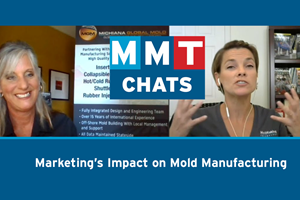For the Business-side of Moldmaking Try A Consultant
Let experience, education and references be your guide to choosing the best consultant.
Moldmaking is truly an art and any successful moldmaker has mastered both the art and craft of moldmaking. It is the business side of this trade that mystifies many who have had no formal training. It doesn't matter how skilled a moldmaker is at mold building if the shop is not able to run smoothly business-wise, and this is why a savvy moldmaker will turn to a consultant when the going gets rough.
Jean Kroes of J.H. Kroes Consulting (Ottawa, Ontario, Canada) explains that first the moldmaker must ask himself why he is seeking a consultant's assistance. "Is it because he doesn't know how to do something or is it because he just wants to have someone support what he knows?" Kroes questions. "Secondly, he has to decide what he needs to know. This, in combination with the first question, should give him an answer about which type of consultant he should get."
Kroes points out that the most common consultant a typical moldmaker gets is a business consultant for the aforementioned reasons. "With all due respect to moldmakers, I have seen many of them who are excellent craftsmen, but the owners of small shops still run their businesses by the seat of their pants, in many cases," he states. "And, if they slide around a little too much that way, something will begin to show - their wallets.
"There are many ways this can be remedied," Kroes continues. "In Europe, when someone masters in his trade, the courses always include basic business - like accounting, correspondence, applicable laws and basic financial aspects. Often some of these courses are even included in the apprenticeship program (correspondence and some accounting, for example). Over here, one can start a business in whatever field he/she wishes without having any business background or training, and many people do just that. Running a business as a moldmaker puts tremendous strain on the craftsperson: turning out molds is very time-consuming and so is running a business. Something has to give."
Help for Hire
There are a number of ways to select a consultant appropriate for a specific problem or need, Kroes maintains. "One good way is to call the nearest university's business school and talk to some of the professors for recommendations," Kroes says. "Or, one can check with other business people - even his or her accountant. I found that many accounting houses now offer consulting services in many areas. I also have found that many are more accounting-oriented than geared to experience in the specific field - moldmaking.
"The ideal consultant will have some solid background in the trade or area the moldmaker is in, then have specialized in a particular aspect of business or trade," he continues. "On the trade end, there is no reason why not to engage the services of an experienced moldmaking firm or person on a consulting basis. Often, one can purchase these consulting services from a moldmaker who specializes in the specific area without compromising one's position. Nobody is expected to know everything, and the smartest person is the one who recognizes that help is needed. That's why one chooses the consultant on the basis of experience and references as well as education, though a title does not necessarily indicate capability in your required area."
Kroes points out that any businessperson will benefit from a consultant, it's not just limited to the moldmaker. "The consultant is a second pair of eyes and ears, analyzing what is seen and observed," he explains. "A good consultant will share all of these observations with the customer - the moldmaker. The benefits include learning from that given information, saving time in coming to a conclusion and reassurance of knowing that the findings are based on the consultant's experience.
Who to Consult?
But how does one know which consultant to go with? According to Kroes, the moldmaker should go with his or her gut feeling. "He or she needs to feel comfortable with the choice," he comments, "and be able to establish a trust. I don't believe that it should take long to 'align' oneself with the consultant. These people have made it their job to be extra-vigilant and -observant in the areas of their expertise so that they can jump right into the job and zero in on the problems.
"A consultant is like a temp with extra specialization," he continues. "As such, the moldmaker relays his or her requirements in the initial request for quotation and list of expectations so the consultant can estimate the costs to the business. The clearer the communication at the outset, the better the output. If the consultant does not have the expertise but offers to study it, the result is likely open to questions in the end. In that case, the moldmaker may be better off - time- and money-wise - to bring in a specialist from farther away."
Because of a consultant's expertise and versatility, Kroes acknowledges that the costs of hiring a consultant run a bit higher than most other specialists' salaries, but he feels it is well worth the initial cash outlay. "A consultant is able to move fast, assess the situations and juggle different problems at the same time," he states. "He or she also will provide briefings as well as written reports and suggestions."
One would not, for example, hire a consultant to do a regular job in the office, or even do regular sales, Kroes says. "Instead, hire a marketing graduate to learn the basics of the business, then send that graduate out to sell," he comments. "One may, however, hire a consultant to train the graduate in selling the specifics of the business - the best approach, etc., strategies and assessment of the product line to select the best sales approach.
"Recently, franchises with fancy firm names and claims to worldwide consulting experience have been surfacing," Kroes continues. "They offer business services on a long-term basis as 'consultants.' Unfortunately, they are usually not based on the experience of the consultant coming to the client. Instead, they base their business on a series of more-or-less efficient standard processes, which may have proven sufficient for a group of companies. However, they usually do not take into account the very specific situation of the client at hand. Thus, the moldmaker would pay for a series of generalities without consideration of his or her particular needs at that time. This consultant sells what he or she has rather than what the moldmaker needs. The key question to keep in mind is what is needed?"
In conclusion, Kroes notes that the consultant should be project-driven, temporary and very specific to the need. "Most important of all, the consultant should be called in before the problem gets out of hand - when there is a suspicion that help may be needed, get it," he urges. "Don't wait for the boat to be filled with water to send for a marine surveyor, get one when you consider buying the boat. Similarly, when you have the feeling that your company should be making more money, find out why. Your first consultant will pinpoint the cause, then get the specialist to remedy the problem or problems."
Related Content
Mold Builder Uses Counter-Intuitive Approach for Mold Challenges
Matrix Tool Inc. answers customers’ hard questions with creative solutions for cavity spacing, tool sizing, runner layout and melt delivery that reveal the benefits of running in a smaller press size at lower cavitation but higher yield.
Read MoreMMT Chats: Marketing’s Impact on Mold Manufacturing
Kelly Kasner, Director of Sales and Marketing for Michiana Global Mold (MGM) talks about the benefits her marketing and advertising, MGM’s China partnership and the next-generation skills gap. This episode is brought to you by ISCAR with New Ideas for Machining Intelligently.
Read MoreHow to Improve Your Current Efficiency Rate
An alternative approach to taking on more EDM-intensive work when technology and personnel investment is not an option.
Read MoreTackling a Mold Designer Shortage
Survey findings reveal a shortage of skilled mold designers and engineers in the moldmaking community, calling for intervention through educational programs and exploration of training alternatives while seeking input from those who have addressed the issue successfully.
Read MoreRead Next
How to Use Continuing Education to Remain Competitive in Moldmaking
Continued training helps moldmakers make tooling decisions and properly use the latest cutting tool to efficiently machine high-quality molds.
Read MoreHow to Use Strategic Planning Tools, Data to Manage the Human Side of Business
Q&A with Marion Wells, MMT EAB member and founder of Human Asset Management.
Read More








.png;maxWidth=300;quality=90)





_300x250 3.png;maxWidth=300;quality=90)












